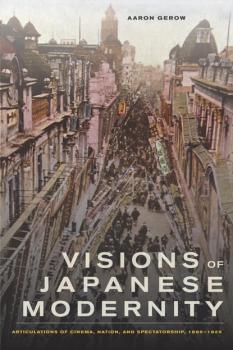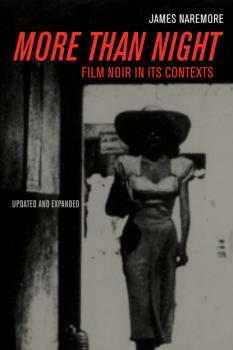Кинематограф, театр
Различные книги в жанре Кинематограф, театрTwilight of the Idols
Twilight of the Idols revisits some of the sensational scandals of early Hollywood to evaluate their importance for our contemporary understanding of human deviance. By analyzing changes in the star system and by exploring the careers of individual stars—Wallace Reid, Rudolph Valentino, and Mabel Normand among them—Mark Lynn Anderson shows how the era’s celebrity culture shaped public ideas about personality and human conduct and played a pivotal role in the emergent human sciences of psychology, anthropology, and sociology. Anderson looks at motion picture stars who embodied various forms of deviance—narcotic addiction, criminality, sexual perversion, and racial indeterminacy. He considers how the studios profited from popularizing ideas about deviance, and how the debates generated by the early Hollywood scandals continue to affect our notions of personality, sexuality, and public morals.
What Is Cinema? Volume II
André Bazin's <i>What Is Cinema?</i> (volumes I and II) have been classics of film studies for as long as they've been available and are considered the gold standard in the field of film criticism. Although Bazin made no films, his name has been one of the most important in French cinema since World War II. He was co-founder of the influential <I>Cahiers du Cinéma, </I>which under his leadership became one of the world's most distinguished publications. Championing the films of Jean Renoir (who contributed a short foreword to Volume I), Orson Welles, and Roberto Rossellini, he became the protégé of François Truffaut, who honors him touchingly in his forword to Volume II. This new edition includes graceful forewords to each volume by Bazin scholar and biographer Dudley Andrew, who reconsiders Bazin and his place in contemporary film study. The essays themselves are erudite but always accessible, intellectual, and stimulating. As Renoir puts it, the essays of Bazin «will survive even if the cinema does not.»
What Is Cinema? Volume I
André Bazin's <i>What Is Cinema?</i> (volumes I and II) have been classics of film studies for as long as they've been available and are considered the gold standard in the field of film criticism. Although Bazin made no films, his name has been one of the most important in French cinema since World War II. He was co-founder of the influential <I>Cahiers du Cinéma, </I>which under his leadership became one of the world's most distinguished publications. Championing the films of Jean Renoir (who contributed a short foreword to Volume I), Orson Welles, and Roberto Rossellini, he became the protégé of François Truffaut, who honors him touchingly in his forword to Volume II. This new edition includes graceful forewords to each volume by Bazin scholar and biographer Dudley Andrew, who reconsiders Bazin and his place in contemporary film study. The essays themselves are erudite but always accessible, intellectual, and stimulating. As Renoir puts it, the essays of Bazin «will survive even if the cinema does not.»
Sunset Boulevard
Sunset Boulevard (1950) is one of the most famous films in the history of Hollywood, and perhaps no film better represents Hollywood's vision of itself. Billy Wilder collaborated on the screenplay with the very able Charles Brackett, and with D. M. Marshman Jr., who later joined the team. Together they created a film both allusive and literate, with Hollywood's worst excesses and neuroses laid out for all to see. After viewing Sunset Boulevard Louis B. Mayer exclaimed: «We should throw this Wilder out of town!» The New York Times , however, gave the movie a rave review, praising «that rare blend of pungent writing, expert acting, masterly direction, and unobtrusively artistic photography.» The film was nominated for Best Picture, and Wilder won an Academy Award for Best Story and Best Screenplay.This facsimile edition of Sunset Boulevard makes it possible to get as much pleasure from reading the highly intelligent screenplay as from seeing the film. Jeffrey Meyers's introduction provides an intriguing array of background details about Wilder, the film's casting and production, and the lives of those connected to what has become a classic.
Visions of Japanese Modernity
Japan has done marvelous things with cinema, giving the world the likes of Kurosawa, Mizoguchi, and Ozu. But cinema did not arrive in Japan fully formed at the end of the nineteenth century, nor was it simply adopted into an ages-old culture. Aaron Gerow explores the processes by which film was defined, transformed, and adapted during its first three decades in Japan. He focuses in particular on how one trend in criticism, the Pure Film Movement, changed not only the way films were made, but also how they were conceived. Looking closely at the work of critics, theorists, intellectuals, benshi artists, educators, police, and censors, Gerow finds that this trend established a way of thinking about cinema that would reign in Japan for much of the twentieth century.
More than Night
"Film noir" evokes memories of stylish, cynical, black-and-white movies from the 1940s and '50s—melodramas about private eyes, femmes fatales, criminal gangs, and lovers on the run. James Naremore's prize-winning book discusses these pictures, but also shows that the central term is more complex and paradoxical than we realize. It treats noir as a term in criticism, as an expression of artistic modernism, as a symptom of Hollywood censorship and politics, as a market strategy, as an evolving style, and as an idea that circulates through all the media. This new and expanded edition of <I>More Than Night </I>contains an additional chapter on film noir in the twenty-first century.
Cinema, Emergence, and the Films of Satyajit Ray
Although revered as one of the world’s great filmmakers, the Indian director Satyajit Ray is described either in narrowly nationalistic terms or as an artist whose critique of modernity is largely derived from European ideas. Rarely is he seen as an influential modernist in his own right whose contributions to world cinema remain unsurpassed. In this benchmark study, Keya Ganguly situates Ray’s work within the internationalist spirit of the twentieth century, arguing that his film experiments revive the category of political or «committed» art. She suggests that in their depictions of Indian life, Ray’s films intimate the sense of a radical future and document the capacity of the image to conceptualize a different world glimpsed in the remnants of a disappearing past.
Playing Shakespeares Monarchs and Madmen
Playing Shakespeare’s Monarchs and Madmen is the third volume in the Peter Lang series, Playing Shakespeare’s Characters. As in the previous volumes, a broad range of contributors (actors, directors, scholars, educators, etc.) analyze the concepts of monarchy, leadership, melancholy and madness with not only references to Elizabethan and Jacobean studies, but also to Trump, Brexit, cross-gender and multi-cultural casting. What does it mean to “play the king” in the 21st century? What is the role of an “all-licensed” Fool in the age of spin? Who gets to represent the power dynamics in Shakespeare’s plays? This volume looks at the Henrys, Richards, Hamlets, Lears and various other dukes and monarchs and explores the ways in which men—and women—approach these portrayals of power and the lessons they hold for us today.
The Frightful Stage
In nineteenth-century Europe the ruling elites viewed the theater as a form of communication which had enormous importance. The theater provided the most significant form of mass entertainment and was the only arena aside from the church in which regular mass gatherings were possible. Therefore, drama censorship occupied a great deal of the ruling class’s time and energy, with a particularly focus on proposed scripts that potentially threatened the existing political, legal, and social order. This volume provides the first comprehensive examination of nineteenth-century political theater censorship at a time, in the aftermath of the French Revolution, when the European population was becoming increasingly politically active.
The Earth Wants YOU
Published on Earth Day, Friday, April 22nd, 2016 to maximize publicity.Book differs from his previous titles on consumerism & shopping as he focuses here on the earth/environmentalism/conservation.Reverend Billy is a constant and vital presence on the streets of New York, and other cities, taking part in political actions, including a coordinated effort to ban sales of Monsanto's pesticides. He's opening for Neil Young's NYC show in July 2015, in support of Young's latest album «The Monsanto Years.»Reverend Billy has a weekly radio program on WBAI in New York City, and regularly contributes to the Huffington Post Green Pages, Truthout, Buzzfeed, and Alternet among other places.









